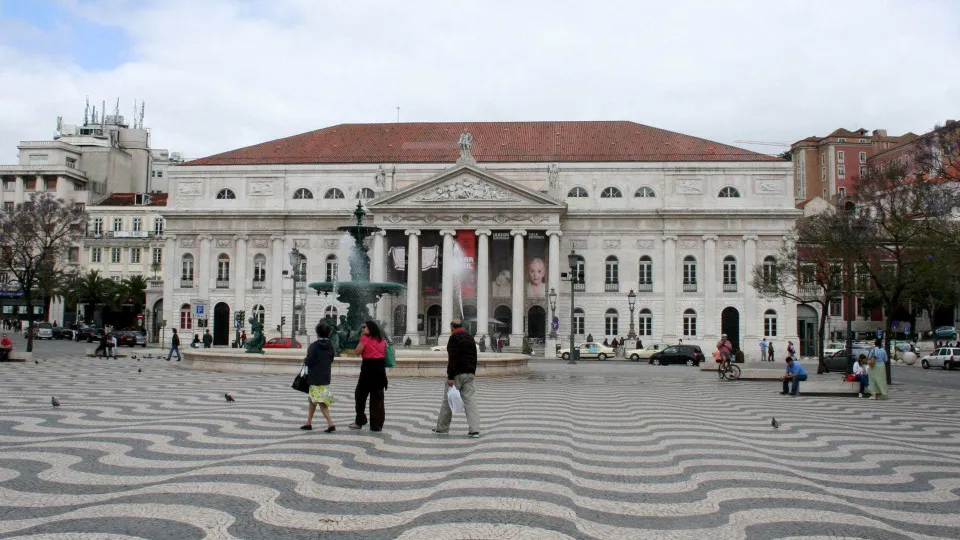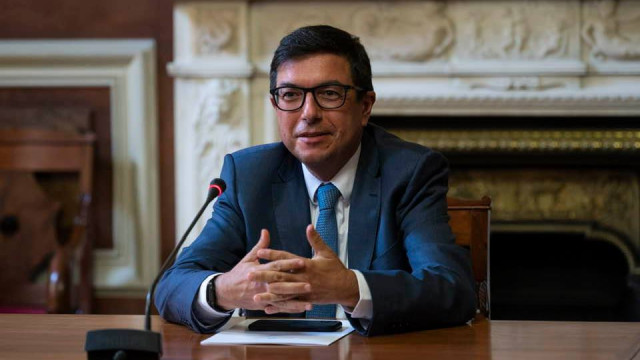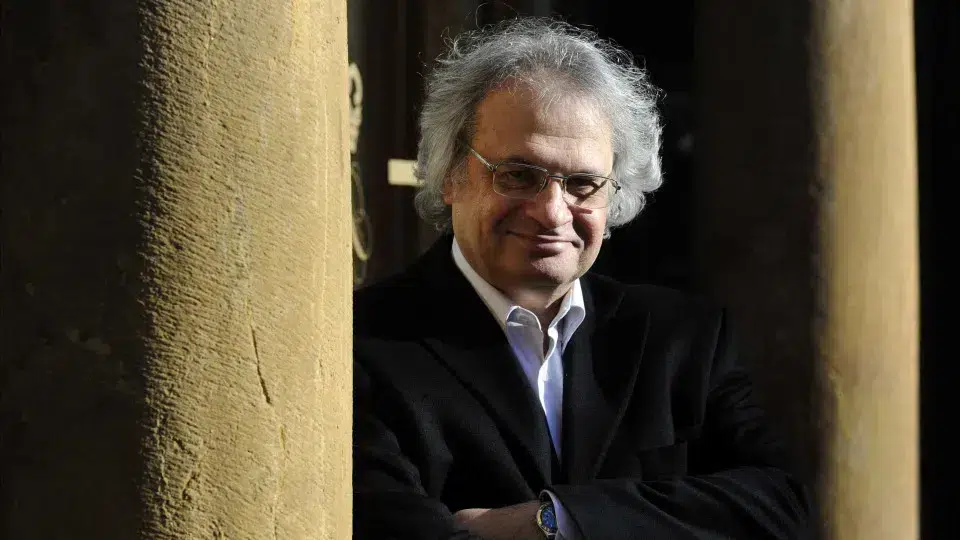
The program kicks off this Friday, on the 5th, at Sala Estúdio Valentim de Barros, located in Jardins do Bombarda, Lisbon, with the final presentation of the advanced theatrical training project “École des Maîtres.” This project was developed over the summer by Iranian director Amir Reza Koohestani, involving 20 young actors from Belgium, France, Italy, and Portugal, focusing on the “performative potential of everyday life.”
The official opening session of the Teatro Nacional D. Maria II (TNDM) season is scheduled for the 12th, with the premiere of “O Nariz de Cleópatra, pois claro!” at Teatro Variedades in Lisbon, where it will be staged until October 5th.
This play, based on the text by Augusto Abelaira, is directed by Cristina Carvalhal. According to its synopsis, the storyline follows a group of 23rd-century adventurers who change the course of history.
The premiere will be preceded by the announcement of the winner of the 6th Ageas/TNDM Revelation Prize.
“O Nariz de Cleópatra, pois claro!” is the last of six projects in the TNDM programming to be presented this year at Variedades. By 2026, there is a plan to return to the main building in Rossio, Lisbon, which has been closed for renovations under the Recovery and Resilience Plan since January 2023.
On the 20th and 21st, at Sala Estúdio Valentim de Barros, the spotlight will be on “Coral dos Corpos sem Norte,” a performance by Angolan artist Kiluanji Kia Henda, in a debut collaboration with the BoCA – Biennial of Contemporary Arts. The work reflects on migrations as a “pemba process,” a ritual for a journey “without beginning and without end.”
In this northward movement of migrants, as described in the presentation of the work, “instead of paradises,” what is found is “an atrocious reality,” with the Mediterranean transformed into a “cemetery of bodies adrift.” It offers a reflection on Europe, colonialism and post-independences in Africa.
Also as part of BoCA, and in the same venue, TNDM will present “Toda la Luz del Mediodía” by the Spanish artist Julián Pacomio, an exploration “on time, light, and the body as a sensitive landscape,” on the 13th and 14th.
Later this month, on the 16th, Jardins do Bombarda will host the debate “Gaza: Thinking, Resisting, Imagining,” organized by TNDM, “aimed at reflecting on the public function of institutions and cultural agents, the risks of silence, and the political potential of art.”
The debate will be moderated by Maria Vlachou, head of the Acesso Cultura association, and will include contributions from director Joana Craveiro of Teatro do Vestido, journalist Patrícia Fonseca, TNDM artistic director Pedro Penim, and researcher Shahd Wadi.
This debate marks the start of a TNDM program dedicated to Palestine, “to promote a critical and plural reflection on the urgency of the moment and the role of the arts.” This includes making videos available on the TNDM website with testimonies from Portuguese and foreign journalists, academics, artists, activists, and thinkers.
Until December, TNDM’s program includes six more performances to be presented at Sala Estúdio Valentim de Barros: “Luta Armada” by André Amálio and Tereza Havlícková of the Hotel Europa company; “As Secretárias” by the American feminist collective The Five Lesbian Brothers, directed by Maria Inês Marques; “Itinerário” by Rogério Nuno Costa, created as part of the Sustainable Theatre Alliance for a Green Environmental Shift (STAGES) project; and, as part of the Alkantara Festival, “Flesh can’t can’ t not’t ’tis flesh h…” by Mario Barrantes Espinoza (Costa Rica/Nicaragua) and “Galactic Crush II: Into the Cold” by Lebanese artists Stephanie Kayal & Abed Kobeissy.
From December 3rd to 7th, the programming for 2025 at Sala Estúdio Valentim de Barros will conclude with “Rito de Transição: Corpo T” by Ritó Natálio, also developed under the STAGES project, presented as a “political fable […] an ode to queer parenting and childhoods.”
To close the year, TNDM will premiere “carne.exe” by Carincur and João Pedro Fonseca at the Centro de Arte Moderna da Gulbenkian. The show features Albano Jerónimo acting alongside an original artificial intelligence model, with performative capabilities (AROA – Artificial Relational Ontological Agent), trained with poetic and philosophical material. The production is a collaboration with ZABRA – Center for Post-Human Art Research, co-produced by TNDM, and sponsored by NTT Data Portugal.
Beyond Lisbon, TNDM will take shows, workshops, and other activities to various regions of the country until the end of the year as part of its “National Odyssey.”
“O Auto das Anfitriãs” by Inês Vaz and Pedro Baptista, inspired by Camões, will be presented in Paredes de Coura, Miranda do Corvo, and Celorico da Beira; children’s shows “Cabe mais um?” and “Não se pode! Não se pode!” directed by Catarina Requeijo will be shown in Lagos, Ourém, and Ponte de Lima; “Corre, Bebé” by Ary Zara and Gaya Medeiros, the winning project of the Amélia Rey Colaço Grant, will be staged in Montemor-o-Novo.
The participatory art program ATOS, developed by TNDM and the Gulbenkian Foundation, will “implement 25 micro-projects by the end of the year” in the municipalities of Funchal, Lamego, Loulé, and São João da Madeira, engaging local communities.
In Braga, at Theatro Circo and gnration, on November 27th and 28th, “Scenarios” of experiences and learnings from the “National Odyssey” projects by TNDM and Braga 25 – the Portuguese Capital of Culture – will be shared. As part of this program, the play “La Vie Sècrete des Vieux” by Mohamed El Khatib will be presented at Theatro Circo.
Throughout the country, theatre workshops for primary and secondary school students will continue, along with shows for schools, and training for preschool teachers, educational assistants, and primary school teachers, among other activities.
In Lisbon, at Tobis Portuguesa, three professional training sessions will also be held: “The Invisible Voice: The Return of the Theatre Point” by Cristina Vidal; “Meeting Practices” guided by Raquel André, for artists with and without disabilities, as well as the deaf and blind community; and on creating participatory artistic projects, as part of the ATOS program.
The programming is available on the TNDM website.




